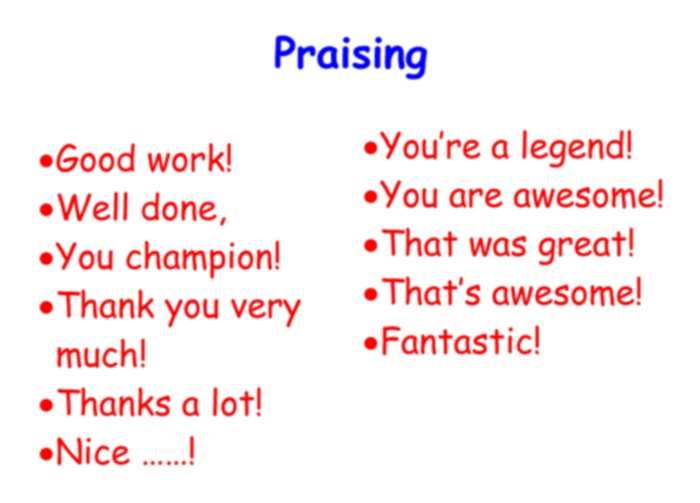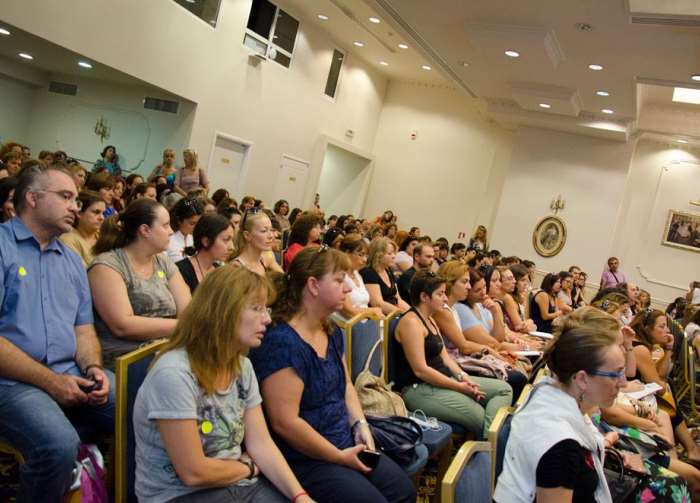16. Not offering praise
The problem with corrections is that sometimes all we do is tell our students what they did wrong and forget to tell them what they did great.
After a role play activity, praise your students for what they did very well, first: “Good job! You remembered to use all of the vocabulary and expressions we learned today!”
And then refer to what they need to work on: “But you were talking about what you did last weekend, and you forgot some of the verbs in past. Why don’t you review those for next class?”
Even though you are telling them what they did wrong, they get a more positive message by hearing what they did right first.
17. Not teaching in context
We should always try to teach in context because it gives students a background to lean on – it’s much harder to learn isolated words or grammar without the right context.
But how does it help boost student confidence? If you use a context students are already familiar with -say shopping- you allow them to work with a situation they are able to handle.

If you set clear goals with your class, at the start of the school year and even at the start of each class, they’ll have a better sense of what they’ve accomplished.
Say you start the class by telling students that today they will learn how to check in and out of a hotel. Finish the class by saying, “Congratulations! Now you’re ready to check into any hotel!” They’ll be amazed at how much they’ve learned.
19. Not giving them chances to succeed
In an EFL class, students are at a disadvantage – they don’t understand; they can’t speak like you do.
It’s important to take the focus away from their weakness (their poor language skills) and place it on their strengths.
Teenagers especially have skills -IT skills for instance- you don’t have; and chances are they’ll do a great job explaining them to you.

20. Teacher: Do you understand?
Student: Yes…
9 times out of 10, the student will answer yes; and 9 times out of 10, the student doesn’t understand. Why? Well, nobody likes to feel like the dullest knife in the drawer.
In fact, a much better way to check and see if they understand is through example.
Have them use the just learned language in a sentence, repeat the instructions, or have them explain the idea further. Try your best to never end a topic of study with, “do you understand?”.
Conclusion
As teachers, we continually come across problems in the classroom. It’s important to face each one, and do our best to patch-up any holes in our teaching abilities.
In Thessaloniki only 10 topics were discussed. In Athens the panel discussion took place on both days (Saturday and Sunday).
Half of the topics were discussed on Saturday and the rest on Sunday. This gave the opportunity to teachers to attend both sessions.
